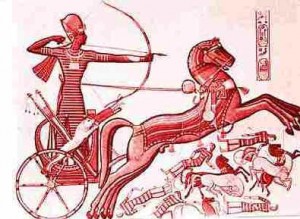Egypt’s military II
 Michael Hanna elaborates his views on the Egyptian military’s role in a presidential transition at Democracy Arsenal. He brings up some of the crucial Mubarak era history (which I didn’t have room for in my NYT piece on the subject), in particular President Mubarak’s 1989 firing of the popular defense minister, Field Marshal Abu Ghazaleh.
Michael Hanna elaborates his views on the Egyptian military’s role in a presidential transition at Democracy Arsenal. He brings up some of the crucial Mubarak era history (which I didn’t have room for in my NYT piece on the subject), in particular President Mubarak’s 1989 firing of the popular defense minister, Field Marshal Abu Ghazaleh.
Michael writes:
It is hard to pinpoint the parameters of the military’s power within Egyptian society at this juncture. Yes, it is the most respected and coherent organization in the country, but Egypt does not fight wars anymore and the military is not involved in the day-to-day of politics. And, it has not been overtly involved in a presidential succession since 1952. While Anwar al-Sadat and Hosni Mubarak were both military men, they were hand-picked as vice-presidents by the president. There was no real process for the military to be involved beyond the sort of informal vetting that might have taken place internally prior to the their appointments. And it is also worth remembering that both al-Sadat and Mubarak were seen as weak figures with no broad popular legitimacy at the time they assumed the presidency, and, yet, the military regime did not attempt to block the ascension of either man to the post.
From an institutionalist perspective, the central question about Egypt remains what pathways exist beyond the mechanisms of power controlled personally by Hosni Mubarak. In the case of the military, it appears that its power must be substantially weaker than it was in 1970 or 1980, but how much weaker, and what control it has, are open and vital questions.

